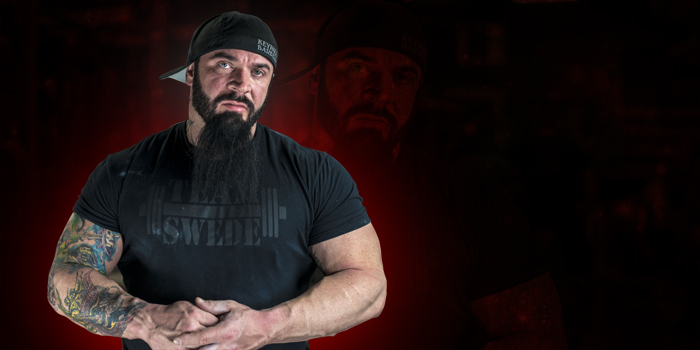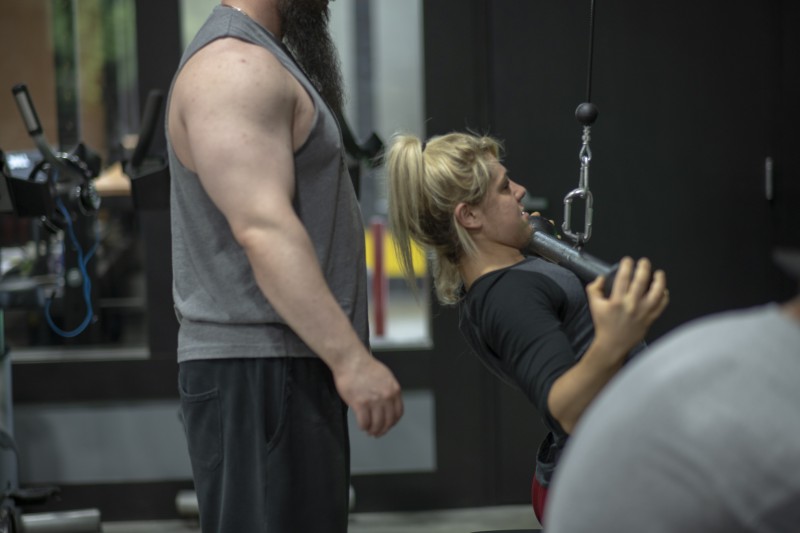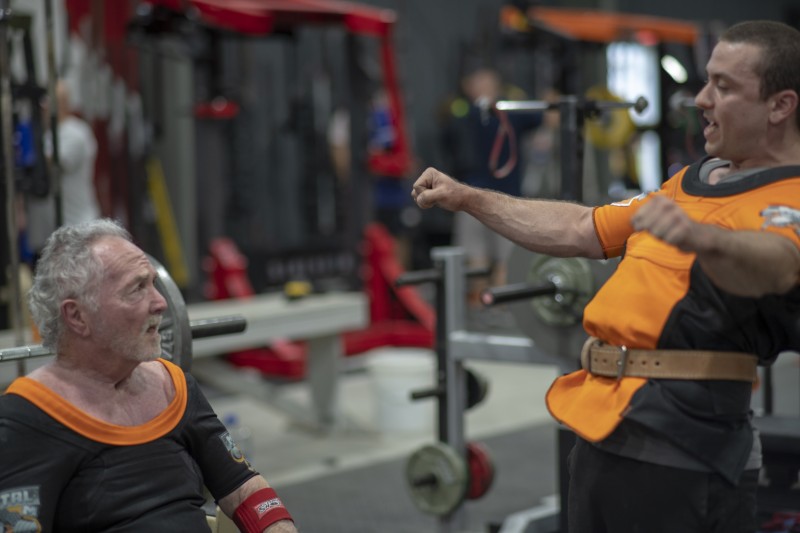
Having the right crew or partner to rely on, and to train with, can make or break a lifter. It’s one of the most sought-after and difficult-to-find things for competitors and hobby lifters alike.
But the title of this article suggests it is about how to be good training partners ourselves, rather than how to find solid ones. This is pretty much for the same reason we would focus on how to be good romantic partners if we want to find good ones. It’s always a smart idea to work on being able to provide the things we want to receive to the people from whom we expect to receive those things. So, learning to be good training partners will dramatically increase our ability to find good training partners.
RECENT: A Manual for Implementing Technical Cues
Take my word for it: Having even just a single dependable training partner can be great. I’ve gone long periods of time kicking ass with just one partner (and even on my own, when I had to). But ideally, if we are able to do so, we want to create an environment that is conducive to cultivating a solid training group structure. The atmosphere that accompanies that kind of structure is like an incubator for developing lifters. Seems like common sense, right?
So, then, the question is: How do we create that?
Be the partner or partners we want.
In the quest to build a quality training environment, we should always start by leading from the front. Even if we aren’t the strongest lifters in the world, we can still lead by example when it comes to embodying the characteristics of someone with whom we’d want to train. Here are some examples of the most important qualities we can demonstrate in training, which will not only set the standard for the environment we want but also set the stage for others to contribute to it.
Work hard.
To quote my man Dwayne Johnson, “Always be the hardest working person in the room.” This is the kind of thing that starts off as an easy mission, but if you’re consistent, I think you’ll find it spread like wildfire, and you don’t even have to be strong to pull it off. No one wants to be outworked in training, least of all by someone weaker than he or she is. (No one worth knowing, anyway.)
Be dependable.
Before we can realistically expect to be able to count on others, we should first focus on being someone others know they can count on. This is as simple as doing the things we say we will do. This includes showing up to the sessions we’ve agreed to attend, loading plates, being attentive during our partners’ sets, and being ready to hand off, crack the mono, provide a spot, or do anything else our partners need.
Be punctual.
If we are supposed to train at 6 PM and others are counting on us to do so, it should go without saying that we need to be there by 6 PM. Of course, some of us have families and other responsibilities, but this is definitely an area where we get what we give. If we don’t make our training partners’ time a priority, we can’t expect them to stick around and help us to finish our training, either.
I can’t begin to tell you how many times I have heard people complain about training partners not staying for them to finish when they showed up late! This is pretty self-explanatory.
Be an imposing or intense presence.
This can look a few different ways, but they all boil down to something valuable.
We don’t have to be big or even jacked looking to be imposing. We simply need to carry ourselves in such a way that no one ever doubts we are going to say what needs to be said and not sugarcoat it. Personally, I’m a different animal when I am training. I’m quiet and forcible, and my tolerance for foolishness is decidedly lacking. Anyone who has ever lifted with me knows that I have chaos inside of me. You can see it scratching beneath the surface, and that’s enough of a visual deterrent to keep everyone on his or her toes. It helps.
If we are shy in our personal lives, that’s our own business. If we carry ourselves as though we’re afraid to speak up and hold the people with whom we train accountable, however, we’ll never be worth much as training partners.
Just as we need to have that fear of being called out to keep us accountable, so do our partners. It’s indispensable, and it’s just as effective from a 123-pound female as it is from a 308-pound male. Maybe even more so.
It’s also worth mentioning that we don’t have to be complete lunatics to be good training partners, but if that happens to be the case, it definitely does not hurt, either. Fear has a far greater influence on human behavior than the potential for euphoria ever could. If I can’t view you as a threat on some level, even if it’s just knowing that you won’t let any bullshit slide, I can’t respect you. If I can’t respect you, I can’t train with you.
Always keep the bar of expectation set high, for ourselves, and remain accountable.
Although it is important to have a healthy understanding of the fact that the hardest worker doesn’t always win, it’s still not a bad idea that we strive to be those hardest workers. My own work ethic is a point of personal pride, but there is more to this than just that.
If someone with whom we are training offers feedback, we should take it into consideration and not take it personal. Even if it isn’t exactly what we want to hear. The high-five brigade hasn’t turned out to be a good lifter yet, which leads us to the next point.
Communicate.
This goes both ways (like your mom). If something a training partner is doing is getting you off your square, tell him or her. And along the same lines, if you suspect something you’re doing is distracting, ask your training partner if it bothers him or her. A good example of this is texting while we are lifting. One person might not care at all, but for another— it can get under his or her skin and really ruin his or her training mindset.
Remember that the other person’s lifting should always be a priority. That’s the only way this type of relationship can work.
I’m not saying you can never send a text or touch your phone without being a shitty training partner, but do consider that this type of thing doesn’t affect just you. It might be enough to ruin the focus of the person or people with whom you are training with, like I said, and if that’s the case, it’s unacceptable. This could be any number of specific examples. Don’t make your partners tell you that. Almost always, this kind of respect is reciprocated.
We need to get to know the needs of the people we train with is the point I am making. A good example of this is the difference between people who do well with positive reinforcement and those who do much better with some negative reinforcement. Until we know what our training partners need, we can’t give it to them. (I feel like there is another mom joke here.)
At one point, I used to train with an extremely talented girl who was generally pretty apathetic about the whole affair and would absolutely never respond to positive reinforcement. But this girl was easily motivated, to an insane degree, by the negative. Without someone verbally doubting her ability, she was just too lazy most of the time to do what had to be done. Once I figured out what she needed, I always did my best to give it to her. This is not a super uncommon need to run into.
Keep personal drama and relationships out of training.
Anyone who has been lifting for an appreciable length of time knows at least one lifter whose training took a nosedive as a result of a significant other. Unfortunately, that shit spills over into everyone that person trains with. We do not want to be that person.
Be real.
We should do our best to maintain honesty with our training partners in the interest of injury prevention and realistic feedback about a lift being acceptable. We don't want to be the constant negative voice, but we aren’t helping anyone by pretending that a shitty lift looked okay or that depth was there on a clearly high rep.
I believe that bringing the above-listed behaviors into play will help us to become the best lifters and partners we can be. By doing that we are likely to eventually find ourselves surrounded by competent help when we need it the most.
Thank you for reading. Please share this article if it has helped you, and as always, feel free to reach out to me with ideas for topics you’d like to read about in the future.












